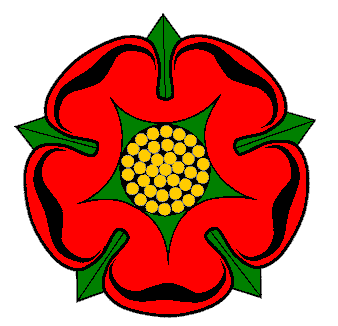The Lancashireman's family history |

|
The Lancashireman's family history |

|
These sessions, for the trial of the principal rioters in the late disturbances at Blackburn and the neighbourhood, were held this morning.
Mr. T. B. Addison, the recorder of the town, officiated as chairman, and on the bench were Colonel Austen, Mr. T. M. Lowndes, Mr. W. Birley, and several other county magistrates.
The first prisoners indicted were John King, John Harwood, John Lord, Joseph Johnson, George Pilkington, and James Grimshaw, for a riot at Blackburn, on Monday, the 15th of August last. It appeared from the evidence, which was very conclusive against the prisoners, that an attack was made upon several of the mills in the town in the forenoon of the day, and that the mob succeeded in turning the hands of many of the principal establishments out of work. The prisoners were proved to be the most active of a large assemblage, who were all well armed with bludgeons of a very formidable description. They were arrested by a strong body of the special constables, sided by the military, and offered considerable resistance.
Johnson and King pleaded guilty.
Mr. J. Addison, the recorder of Clithero, and Mr. Ingham conducted the prosecution, and the four remaining prisoners were defended by Mr. Wigham.
The Jury, after a short deliberation, returned a verdict of Guilty.
Lord, Pilkington and Grimshaw were sentenced to twelve months imprisonment in Kirkdale gaol; Howe and King, who pleaded guilty, to six months' imprisonment; and Johnston to three months' in the House of Correction in this town.
William Proctor, William Hutchinson, Abraham Rogers, William Smalley, Roger Walsh, and Squire Hutchinson were next indicted for committing a riot at Blackburn on the same day. These prisoners headed the attack on the mills of Messrs. Eccles, at 5 o'clock in the afternoon, outside which they violently assaulted and knocked down Mr. Montagu Fielden, a county magistrate, in the exercise of his duty whilst reading the Riot Act. On this occasion the detachment of the 72d Highlanders, who were stationed in the town, fired upon the mob, by which a female who took an active part in the disturbances, with several other persons, were severely wounded. This mob, as in the former case, were armed with powerful bludgeons. The hand in the establishments were armed to protect the premises, many of them with fire-arms, which they used against the mob prior to the arrival of the military. The mob consisted of upwards of 500 persons, all of whom were armed, walking 12 or 14 abreast. Proctor, who was 59 years of age, it appeared, acted as one of the leaders on the occasion. The evidence, as in the former case, was very conclusive, and the whole of the prisoners were convicted. Rogers was sentenced to imprisonment for six months, as was William Proctor, for the assault on Mr. Fielden; Smalley and Hutchinson for three months, and Walsh and William Hutchinson for two months.
John Wilkinson and Joseph Rawlinson were next indicted for a riot at Blackburn on the same day. They each pleaded guilty, and were sentenced to six months' imprisonment.
William Rawlinson, Richard Holden, Ann Yates, Jane Catterall, James Hurst, James Driscoll, William Hodson, and Joseph Yates, were indicted for having, on the 15th of August, turned several persons out of employment at Blackburn, and assaulting two of the police in the execution of their duty.
Holden, Yates, and Hurst pleaded guilty.
The prosecution was conducted by Mr. J. Addison and Mr. Walmsley, and the prisoners were undefended.
The two women were very active in heading an attack upon a coach which was conveying some prisoners to the barracks, and the male prisoners, particularly Rawlinson, made use of very violent expressions, stimulating the mob to acts of violence.
The prisoners were all found Guilty; the two women being sentenced to six months' imprisonment in Lancaster Castle, Yates and Hurst to six months' imprisonment at Kirkdale, Rawlinson (who received a good character from several persons, and who was proved to have received a wound on the head at the last Guild, 20 years since, which rendered him insane when under the influence of drink) to six months' imprisonment, Driscoll to four, and Holden to two months.
Benjamin Wainscot, William Cook, Henry Thompson, James Barker, and John Hanson, pleaded guilty to an indictment charging them with coming riotously in a crowd from Accrington to Blackburn, where they violently assaulted the Yeomanry on duty by pelting them with brickbats from behind a hedge.
Barker was sentenced to four months' imprisonment; Hanson, Wainscot, and Cook to two months'; and Thompson to one months' imprisonment, at the House of Correction in this town.
Robert Hartley, a man well-dressed, and in a superior situation of life, Ratcliffe Ingham, William Brennand, Ratcliffe Hoyle, and Riley Catterall, were indicted for riotously assembling and endeavouring to enter into Blackburn on the 16th of August, when they were intercepted by the military and police. The prisoners all pleaded guilty, and Ingham, who flourished a bludgeon over the heads of the police, was sentenced to six months' imprisonment, and the other prisoners to two months' each.
The RECORDER, in addressing the jury, took occasion to remark that the results of the trials at the present and the preceding sessions had shown that the parties engaged at the recent riots did not belong to the poorest classes of society. They were generally persons in good employment, who should have been content with the wages which they received, but had in a great many instances subscribed towards the trades; unions. They had aggravated greatly the distress under which the working classes laboured, and they would always be the sufferers from such illegal combinations.
|
© David Haworth About this site (Impressum). |

|


|